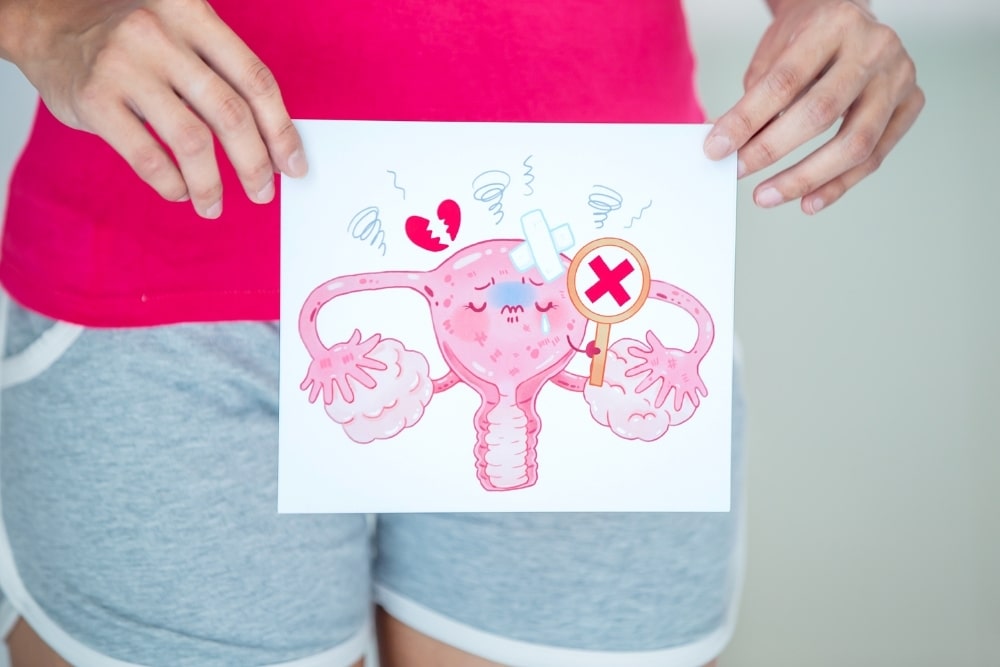Have you just underwent your first or second or even fifth pap smear, and now feeling a bit concerned about the bleeding afterward? As if the entire procedure wasn’t enough to spike some of your nerves!
Your back home now, feeling relieved that the test is finally over and just getting comfortable in your own privacy again. When you go to use the toilet and notice a bit of blood…
If this was your first pap smear what you’re seeing might be frightening, but rest assured there are reasons that bleeding might happen that aren’t any reason to be so worried about.
Take a deep breath, while we go over some of the main causes of bleeding among women who just got a pap smear.
Bleeding after a pap smear is surprisingly common among ladies, it can happen during or after the procedure, for a few days, or just one occurrence. Let’s go over the possible causes, together.
Why Do Women Need To Get a Pap Smear in the First Place?
This is one of the most common questions when a lady is suggested that she needs a pap smear, so what is it?
Females need to keep their reproductive organs healthy and free of abnormalities. One way to do this is to check on a regular basis if there are any abnormal cells present on the cervix.
Doctors or obstetricians do this by performing a pap smear, basically, they grab a few of the cervical cells and check them out at a microscopic level.
What type of abnormal cells are looked for under the microscope
There are various types of abnormal cells that could be potentially seen during a pap smear, and the earlier they are detected the more effective the treatment plan will be to correct the abnormality.
They could detect any type of abnormal cells, from an infection of the cervix to cervical cancer. In fact, it’s one of the best ways to detect if something is off, in your lady regions.
As far as STD’s or HIV goes, this can be very helpful in treating it early on.
What Does It Mean If My Doctor Says My Pap Smear is Abnormal
If your doctor calls and says that your pap smear was abnormal, then it means cells that do not look 100% normal were found on your cervix. This could mean many things, and until further details of the cells are released to you, try not to stress out.
There are many reasons for abnormal results, some of which the cells could correct on their own without any intervention.
The most common cause of abnormal pap smear cells is from the Human Papilloma Virus or HPV
Most of the time when a female is told her pap smear results are abnormal, it is the result of the Human Papilloma Virus, also known as HPV.
View in gallery
This is a sexually transmitted infection that often goes away on its own, but sometimes requires treatments if necessary.
The reason a pap smear is so important in the case of HPV is that certain strains of this infection are linked to cervical cancer. And if caught early on should be removed or treated accordingly.
Are there any other reasons for an abnormal pap smear
Yes, there are plenty of other reasons that you could have an abnormal pap smear result. The results are unique to every individual.
When having a pap smear, that results in abnormal cells. You’ll need to ask your doctor to clarify why your test results are abnormal.
Bacterial or yeast infections
Outside of HPV, there are bacterial or yeast infections that could cause the cells of the cervix to change. Common yeast infections can cause cells to change briefly, which can be treated accordingly too.
If you have an infection like such, you can proceed by treating the infection with home remedies, or oftentimes doctors prescribe antibiotics.
Menopause can cause cervical changes
Menopause is another reason that women get an abnormal test result for a pap smear. At a certain age, a woman will go through menopause when her ovulation cycle, hormones related to childbearing, and period will undergo significant changes.
When going through menopause a woman’s cervical cells could change and be detected by a pap smear, resulting in an abnormal test result. Women over the age of 35 should have a pap smear.
Smoking and even genetics can cause abnormal cells
Smoking frequently and genetics can also cause an abnormal pap smear test to occur at some point in life.
People with a compromised immune system could also have an abnormal pap smear come up from the possible cell changes that take place with an impaired immune system.
Is Bleeding After A Pap Smear Common and Should I Worry If It Happens to Me
View in gallery
You don’t need to worry at all if bleeding occurs after your pap smear, whether it’s your first or fifth pap smear. Bleeding happens to plenty of women – most women – since the cervix has so many blood vessels in it.
The cervix is extremely sensitive. When it is scraped for a pap smear, it can cause the blood vessels to rupture and bleed. The bleeding can happen during or after the procedure and be completely normal.
There are tons of blood cells on the surface, that will be ever so gently scraped off for observation, with a wooden or plastic spatula. This shouldn’t hurt while having it done, since it is done so gently.
The bleeding happens as a result of the blood cells being briefly disrupted or irritated. This is why it’s so common for women to see at least some amount of bleeding after a pap smear.
This bleeding can happen even if there was no bleeding on the first pap smear – it can still happen on the following pap smears.
Other Causes of Bleeding After A Pap Smear
There are other causes of bleeding after a pap smear. The hormones in birth control can result in an extra sensitive cervix that bleeds easily during the pap smear.
When the cervix is scraped (even lightly) with a cytobrush, the wooden spatula can cause the cervix to bleed quite easily.
Hormones in your birth control cause bleeding after a pap smear
Hormone-based birth control changes the hormonal balance of a woman, to prevent pregnancy this can cause your vagina to be extra sensitive. When this happens, the cervix is more likely to bleed as a result of being scraped during the procedure.
Sexually transmitted diseases can cause the cervix to be irritated
If there’s a sexually transmitted disease present then the vagina and cervix could bleed from the disease since the cervix is already extra sensitive and irritated from the disease itself.
As your body tries to heal an STD on its own, it will send more blood to the area to try and fight off the infection. Hence, the more easily the cervix would bleed after a pap smear.
Pregnancy causes an extra sensitive cervix
Pregnancy is another common cause of bleeding noticed after a pap smear. When a baby is growing in a woman’s womb, an abundance of blood is sent to the uterus and vaginal region to support the fetus’s growth.
View in gallery
The extra blood and more sensitive vaginal tissues combined could cause bleeding after a pap smear. If a woman is pregnant, the procedure will be slightly different more gentle begin with – thankfully!
Since the cervix of pregnant women is so sensitive, the doctor will use only a gentle swab to collect cervical cells.
This is helpful for pregnant women who already feel more vulnerable emotionally with a fetus in their womb. Avoiding the normal spatula that is used for non-pregnant females, is ultimately less invasive to the cervix.
The cervix and uterus are sometimes connected by polyps, finger-type extensions. When a pregnant woman has a pap smear, the polyps sometimes burst and bleed themselves. When these vessels burst, it poses no additional risk to the baby or mother.
Burst polyps are a common cause of bleeding among pregnant women after a pap smear. The mother doesn’t need to stress or worry over these bursting.
Do Abnormal Cells Detected In The Pap Smear Cause Additional Symptoms For the Female
No, the change to the cells in the cervix doesn’t cause signs or symptoms in itself. Yet, what does cause symptoms in the female is the reason that the abnormal cells are being produced.
Such as the infection that is present and needs to be taken care of. It causes other symptoms like itching, inflammation, or redness to the vaginal area.
You might be experiencing these types of symptoms or even pain when you have a pap smear procedure, ultimately the pap smear will help you get to the bottom of the undesirable symptoms you are having.
When To See A Doctor For Bleeding After A Pap Smear
We now know that bleeding after a pap smear is very common among women, but when should one be concerned with the bleeding you are experiencing?
If your bleeding lasts more than 4 days you should be concerned about it, unless you feel that your bleeding is due to a period starting after your pap smear procedure.
Cramping and bleeding is a good reason to call the doctor
If you get done with your pap smear, return home and notice you start feeling cramps coupled with bleeding(light or heavy) then you should see a doctor. This could be a sign of a sexually transmitted disease or vaginal infection.
If your pregnant and experience cramping its best to be seen by a doctor sooner than later
If you’re pregnant and feel cramping as well, you should be concerned, if heavy or ongoing bleeding occurs after a pap smear.
Heavy bleeding is considered soaking more than one pad an hour, ongoing bleeding means anything more than light spotting that goes on for more than the first 24 hours.
It would be advisable to see your obstetrician or a doctor if you’re pregnant and feel abnormal sensations, or, see distinct changes to the nature of the bleeding; cramping, changes to the color of bleeding light to dark or dark to light.
Changes to the bleeding or cramping could be a sign of potential infection, STD, or a burst polyps. it’s better to be safe than sorry and have it checked by a professional.
If there is an active infection you can have further complications after a pap smear is done. The issue needs to be taken care of as soon as possible.
How to treat bleeding after a pap smear should I worry about further infection
Bleeding from anything other than a period is often undesirable for women, and they don’t know what to do about it.
If you begin bleeding after a pap smear, it should pass within a few days. It should move in the right direction the entire time, not becoming heavier or bringing about cramps.
For this type of lighter bleeding, you can go ahead and use a light pad, to give reassurance. But, if you’re experiencing bleeding that seems to happen over the course of a few days you can treat it the way you would a regular period.
Use a tampon if preferred, and bring along an extra set of clothing to change into after your procedure. This will give you peace of mind that you haven’t got any on the backside of your pants after your appointment.
[amalinkspro type=”showcase” asin=”B077NHB343″ apilink=”https://www.amazon.com/dp/B077NHB343?tag=mominformedcom-20&linkCode=osi&th=1&psc=1″ new-window=”true” addtocart=”false” nofollow=”true” sc-id=”4″ imgs=”LargeImage” link-imgs=”false” specs=”You Will Receive 4 Boxes of Tampax Radiant Plastic Tampons, Regular/Super Absorbency, 28 Count (Total 112 Count)~~~TAMPAX Radiant Tampons provide up to 100% leak & odor-free protection. Up to 8 hours of outstanding protection~~~LeakGuard Braid helps stop leaks before they happen. Absorbent core is made of cotton and rayon helps Provide Protection By Absorbing And Storing Fluid” btn-color=”#ff9900″ btn-text=”Buy on Amazon” alignment=”alignnone” hide-prime=”0″ hide-image=”0″ hide-price=”0″ hide-button=”0″ width=”750″]Tampax Radiant Plastic Tampons[/amalinkspro]
A small amount of cramping can be perfectly normal with a pap smear. If this happens a heating pad can help ease the temporary cramping, be sure to drink plenty of water to eliminate the cramping too.
Various thing’s to look forward to after a pap smear
Along with getting a pap smear done, you can expect a few common things to happen after you have it done. You should ask your doctor any questions or concerns you have pertaining to the procedure or aftercare before leaving their office.
Will I know the results of my pap smear right away
It can take anywhere from a few days to a few weeks after having a pap smear to get the results back. Every office is slightly different than the next, so be sure to ask the clinic that you had your appointment with before leaving.
They’ll answer any questions or concerns you might have before you leave the room. Don’t be shy having questions about this procedure, many people don’t know much about a pap smear in general. The more you know the better it is for you.
Should protection be used after a pap smear during sex
Wearing protection during sex is a personal choice, one that should not be made lightly. There are hundreds of STDs and infection that come as a result of unprotected sex with partners.
Every time you change sexual partners or have a new one you should schedule to have a routine check for STDs and diseases.
A pap smear only looks for abnormal cell growth, not sexually transmitted diseases. This means that you could have an active infection and still get a normal pap smear result.
Do I need to have a follow-up test after my pap smear
A second pap smear is usually performed if the results from the first one are abnormal. There are times when the first pap smear is abnormal, while the second pap smear comes back completely normal.
If this is the case, no follow-up care will be necessary. But, other times the pap smear is still abnormal the second time around – if this is the case you will need to be seen by a doctor who specializes in abnormal pap smears.
A specialist will proceed to examine the abnormal cells, and then you will know more about what’s going on with your body.
The specialist will likely perform a biopsy, which is a minor surgical procedure. It is necessary to find out more about the abnormal pap smear result.
What type of follow up care is important that I need to follow
Your doctor will give you a specific set of follow up directions if you end up having an abnormal pap smear. The truth is that pap smears rarely come back abnormal – it’s important to treat the reason that yours came back abnormal.
Some causes of an abnormal pap smear will resolve on their own, while other times the cause of the cell abnormalities will need to be treated with medicine, antibiotics, or other various remedies.
Be sure to follow a care plan, and speak with your doctor if you have an abnormal pap smear.
View in gallery
In Conclusion
Pap smears can be quite nerve-racking, rightfully so for many women. Then coupled with bleeding on top of a pap smear can enhance this feeling.
Try and relax if you’re bleeding, call the office you had your pap smear performed to see what they advise.
Examine the bleeding color, flow, and nature of the bleeding to have the most accurate description to tell the gynecologist or obstetrician. This will help them get a better idea of what is going on with you.
If they ask you to come back into the office for a checkup it’s worth it for your peace of mind. There are plenty of reasons that you could be bleeding that will be perfectly normal, but there have also been times that needed further treatment.
You won’t know what is going on with you until you’re examined by a professional. Even though this experience might be new to you, or it might be your 5th pap smear, bleeding afterward can happen at any number of pap smear you’ve had.
Getting a pap smear is recommended every 3 years from the age of 21 upward – you will be potentially having a pap smear quite often, bleeding can happen even if it hasn’t after previous procedures.
Sources
Bleeding After A Pap Smear – The Definitive Guide
Abnormal Pap Test – Michigan Medicine
What to know about bleeding after a Pap smear – Medical News Daily
What Does it Mean if I Bleed After a Pap Smear? – MedicineNet
Is it normal to bleed after a smear test? – Cosmopolitan
Medical Disclaimer. All content and media on the MomInformed Website is created and published online for informational purposes only. It is not intended to be a substitute for professional medical advice and should not be relied on as health or personal advice.






